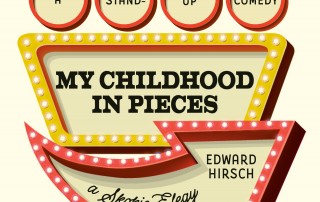
“When writing about William Maxwell it is easy to make him sound saintly,” declares poet Collier. As an award-winning novelist and short story writer and a 40-year New Yorker editor (working with such luminaries as Eudora Welty, John Hersey and John Cheever), Maxwell, who died four years ago at age 92, had much-valued friendships with younger writers, including contributors Donna Tartt, Ben Cheever, Alec Wilkinson, Richard Bausch, Shirley Hazzard, Edward Hirsch and Annabel Davis-Goff (who movingly recalls reading War and Peace to him in his final weeks). Though affectionate and sometimes slightly awestruck, this personal portrait of a scrupulously decent man is necessarily incomplete. While the emphasis is on Maxwell’s later years as well as the Midwestern childhood that formed the basis for his fiction, other events, such as a suicide attempt, are only touched on. His fiction receives far fuller investigation: Charles Baxter examines the uniqueness of So Long, See You Tomorrow among autobiographical fiction, and Alice Munro describes a passage by Maxwell as “done with great care and intensity, so that we feel the intensity but not the care.” The closing contribution fittingly comes from Maxwell himself. His 1955 college lecture “The Writer as Illusionist” illustrates the sensibility that endeared him as an editor to the contributors here. —Publishers Weekly
Pages: 240 pages
Publisher:Norton (2004)
Language: English
ISBN-13:978-0393057713
Three generations of writers celebrate a master whose life and work continue to reverberate in contemporary letters.
William Maxwell, who died in July 2000, was revered as one of the twentieth century’s great American writers and a longtime fiction editor at The New Yorker. Now writers who knew Maxwell and were inspired by him―both the man and his work―offer intimate essays, most specifically written for this volume, that “bring him back to life, right there in front of us.”
Alec Wilkinson writes of Maxwell as mentor; Edward Hirsch remembers him in old age; Charles Baxter illuminates the magnificent novel So Long, See You Tomorrow; Ben Cheever recalls Maxwell and his own father; Donna Tartt vividly describes Maxwell’s kindness to herself as a first novelist; and Michael Collier admires him as a supreme literary correspondent. Other appreciations include insightful pieces by Alice Munro, Anthony Hecht, a poem by John Updike, and a brief tribute from Paula Fox. Ending this splendid collection is Maxwell himself, in the unpublished speech “The Writer as Illusionist.”

BOOKS
[wptabs id=”3997″]



